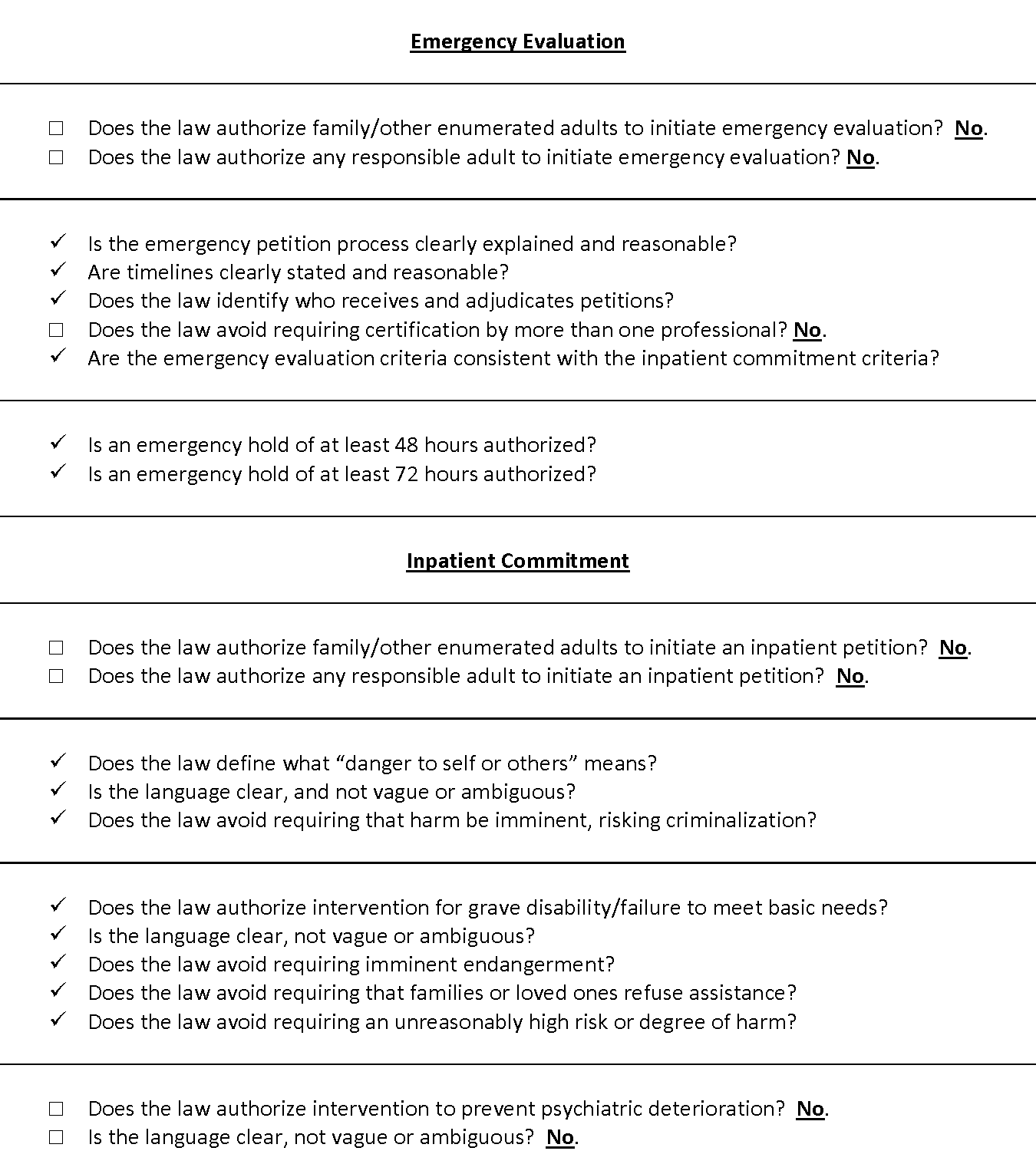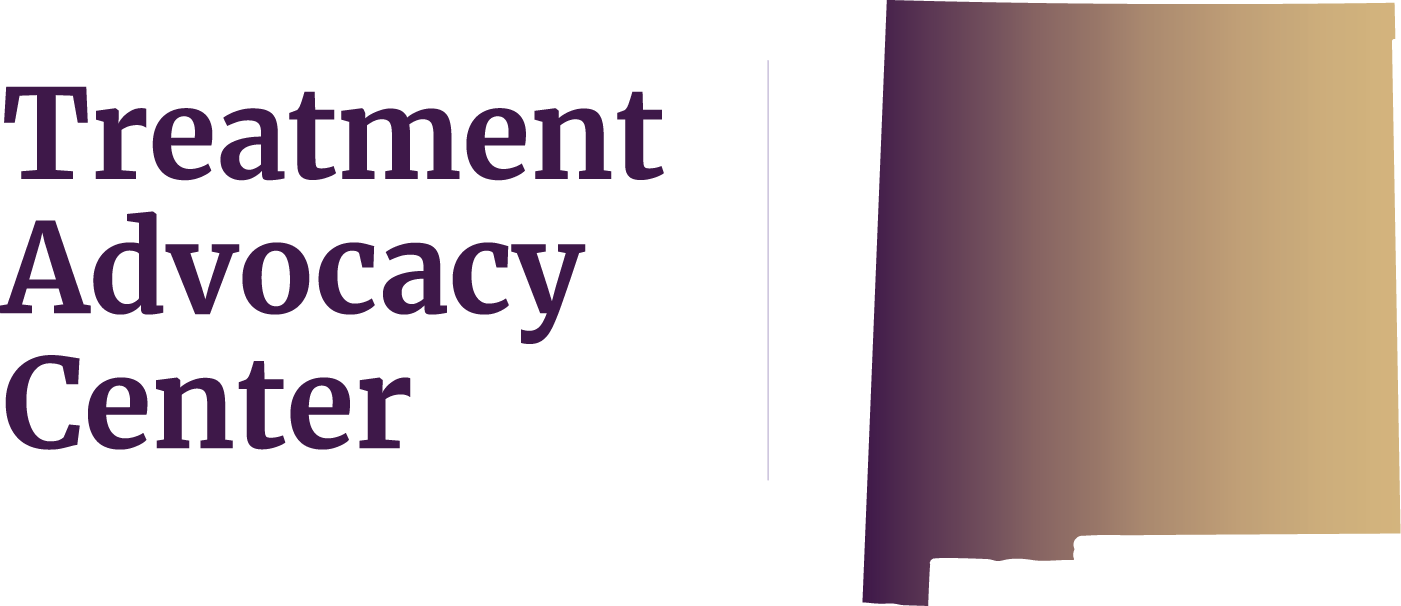Family Resources in Resources in New Mexico
- New Mexico Department of Health Mental Health Program (nmhealth.org) General information
- NM Behavioral Health Services Division (hsd.state.nm.us) Resources and contacts
- NAMI New Mexico (naminewmexico.org) Support groups, training, information
- Disability Rights New Mexico (drnm.org) Protection and advocacy for individuals with disabilities
- Homeless Information: NM | U.S. Department of Housing and Urban Development (hud.gov/states/new_mexico) Shelter locator and links to local resources
- NM Inmate Search, Prison and Jail Information (statecourts.org) Search for someone in jail or prison by name
- State Bar New Mexico (sbnm.org) Legal assistance
How many people in New Mexico have SMI?
individuals with severe mental illness.
individuals with SMI who receive treatment in a given year.
of the adult population is estimated living with a SMI in the United States.
State psychiatric hospital beds in New Mexico
2023 total beds: 137
- Civil beds: 49
- Forensic beds: 88
2023 beds per 100,000 people: 6.5
Click here for more information about state psychiatric hospital beds in New Mexico.
A minimum of 50 beds per 100,000 people is considered necessary to provide minimally adequate treatment for individuals with severe mental illness. New Mexico fails to meet this minimum standard.
For Additional Information
Data is a powerful tool to advocate for change. Curious about a specific data point in your state? Reach out to us at ORPA@treatmentadvocacycenter.org
Fast Facts on SMI in New Mexico
Deinstitutionalization, outdated treatment laws, discriminatory Medicaid funding practices, and the prolonged failure by states to fund their mental health systems drive those in need of care into the criminal justice and corrections systems.
21%
2,612
137
19 to 1
2021 New Mexico State Mental Health Agency's expenditures
Every state receives block grant funding from the federal government to provide mental health services to their community. Below is some information about how these dollars are spent and compares to other state spending.
$386,337,086
13%
$1,933
1.6%
New Mexico's Treatment Laws
N.M. STAT. ANN. § 43-1-10(B). An emergency evaluation under this section shall be accomplished upon the request of a peace officer, or jail or detention facility administrator or his designee, or upon the certification of a licensed physician or certified psychologist as described in Subsection C of this section. A court order is not required under this section. N.J. STAT. ANN. § 30:4-27.6. A State or local law enforcement officer shall take custody of a person and take the person immediately and directly to a screening service if: a. On the basis of personal observation, the law enforcement officer has reasonable cause to believe that the person is in need of involuntary commitment to treatment; b. A mental health screener has certified on a form prescribed by the division that based on a screening outreach visit the person is in need of involuntary commitment to treatment and has requested the person be taken to the screening service for a complete assessment; c. The court orders that a person subject to an order of conditional discharge … who has failed to follow the conditions of the discharge be taken to a screening service for an assessment; or d. An outpatient treatment provider has certified on a form prescribed by the division that the provider has reasonable cause to believe the person is in need of evaluation for commitment to treatment.
N.M. STAT. ANN. § 43-1-11(G). An interested person who reasonably believes that an adult is suffering from a mental disorder and presents a likelihood of serious harm to the adult's own self or others, but does not require emergency care, may request the district attorney to investigate and determine whether reasonable grounds exist to commit the adult for a thirty-day period of evaluation and treatment. N.M. STAT. ANN. § 43-1-11(E). Upon completion of the hearing, the court may order a commitment for evaluation and treatment not to exceed thirty days if the court finds by clear and convincing evidence that: (1) as a result of a mental disorder, the client presents a likelihood of serious harm to himself or others; (2) the client needs and is likely to benefit from the proposed treatment; and (3) the proposed commitment is consistent with the treatment needs of the client and with the least drastic means principle. N.M. STAT. ANN. § 43-1-3(M). "likelihood of serious harm to oneself" means that it is more likely than not that in the near future the person will attempt to commit suicide or will cause serious bodily harm to the person’s self by violent or other self-destructive means, including but not limited to grave passive neglect. N.M. STAT. ANN. § 43-1-3(N). "likelihood of serious harm to others" means that it is more likely than not that in the near future a person will inflict serious, unjustified bodily harm on another person or commit a criminal sexual offense, as evidenced by behavior causing, attempting or threatening such harm, which behavior gives rise to a reasonable fear of such harm from the person.

* Available only in jurisdictions that have “opted in” with a memorandum of understanding between the jurisdiction and the local district court. N.M. STAT. ANN. § 43-1B-4(B). A petition for an order authorizing assisted outpatient treatment may be filed only by the following persons: (1) a person eighteen years of age or older who resides with the respondent; (2) the parent or spouse of the respondent; (3) the sibling or child of the respondent; provided that the sibling or child is eighteen years of age or older; (4) the director of a hospital where the respondent is hospitalized; (5) the director of a public or charitable organization or agency or a home where the respondent resides and that provides mental health services to the respondent; (6) a qualified professional who either supervises the treatment of or treats the respondent for a mental disorder or has supervised or treated the respondent for a mental disorder within the past forty-eight months; or (7) a surrogate decision-maker. N.M. STAT. ANN. § 43-1B-3. A person may be ordered to participate in assisted outpatient treatment if the court finds by clear and convincing evidence that the person: A. is eighteen years of age or older and is a resident of a participating municipality or county; B. has a primary diagnosis of a mental disorder; C. has demonstrated a history of lack of compliance with treatment for a mental disorder that has: (1) at least twice within the last forty-eight months, been a significant factor in necessitating hospitalization or necessitating receipt of services in a forensic or other mental health unit or a jail, prison or detention center; provided that the forty-eight-month period shall be extended by the length of any hospitalization, incarceration or detention of the person that occurred within the forty-eight-month period; (2) resulted in one or more acts of serious violent behavior toward self or others or threats of, or attempts at, serious physical harm to self or others within the last forty-eight months; provided that the forty-eight-month period shall be extended by the length of any hospitalization, incarceration or detention of the person that occurred within the forty- eight-month period; or (3) resulted in the person being hospitalized, incarcerated or detained for six months or more and the person is to be discharged or released within the next thirty days or was discharged or released within the past sixty days; D. is unwilling or unlikely, as a result of a mental disorder, to participate voluntarily in outpatient treatment that would enable the person to live safely in the community without court supervision; E. is in need of assisted outpatient treatment as the least restrictive appropriate alternative to prevent a relapse or deterioration likely to result in serious harm to self or likely to result in serious harm to others; and F. will likely benefit from, and the person's best interests will be served by, receiving assisted outpatient treatment.

Recommended updates to treatment laws
- 1
Amend N.M. Stat. Ann. § 43-1-10 to authorize citizen right of petition for at least enumerated citizens, preferably any responsible adult, for emergency evaluation
- 2
Amend N.M. Stat. Ann. § 43-1-11(G) to authorize citizen right of petition for at least enumerated citizens, preferably any responsible adult, for inpatient commitment
- 3
Add psychiatric deterioration criteria or amend grave disability criteria to include it
- 4
Amend N.M. Stat. Ann. § 43-1B-4 to eliminate the requirement for local adoption
- 5
Amend N.M. Stat. Ann. § 43-1B-4 to authorize citizen right of petition for any responsible adult for outpatient commitment
- 6
Amend N.M. Stat. Ann. § 43-1B-6 to add a requirement for periodic reporting to the court
- 7
Adopt express procedures for the court to monitor uncontested AOT orders entered into voluntarily to give the benefit of the black robe effect to all enrollees
